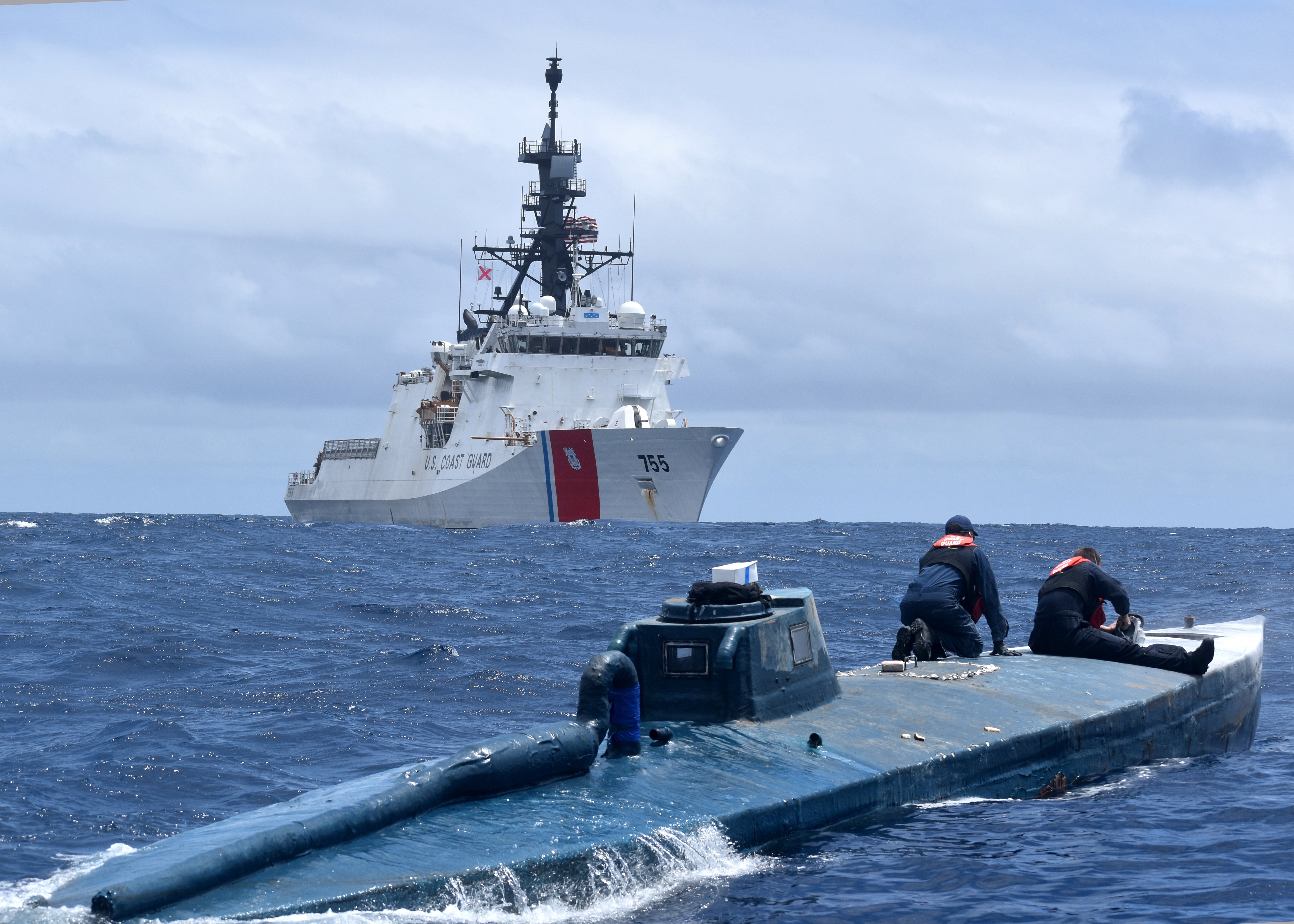
This post is part of a series of review stories looking back at the top naval news from 2019.
For the U.S. Coast Guard, 2019 was marked by big moves in the service’s two most significant programs – the start of the Polar Security Cutter and a delay of the Offshore Patrol Cutter program.
In February, Coast Guard received $655 million to start construction of the first Polar Security Cutter and an additional $20 million to purchase long-lead-time materials for a second icebreaker, as part of the Department of Homeland Security’s Fiscal Year 2019 appropriations bill.
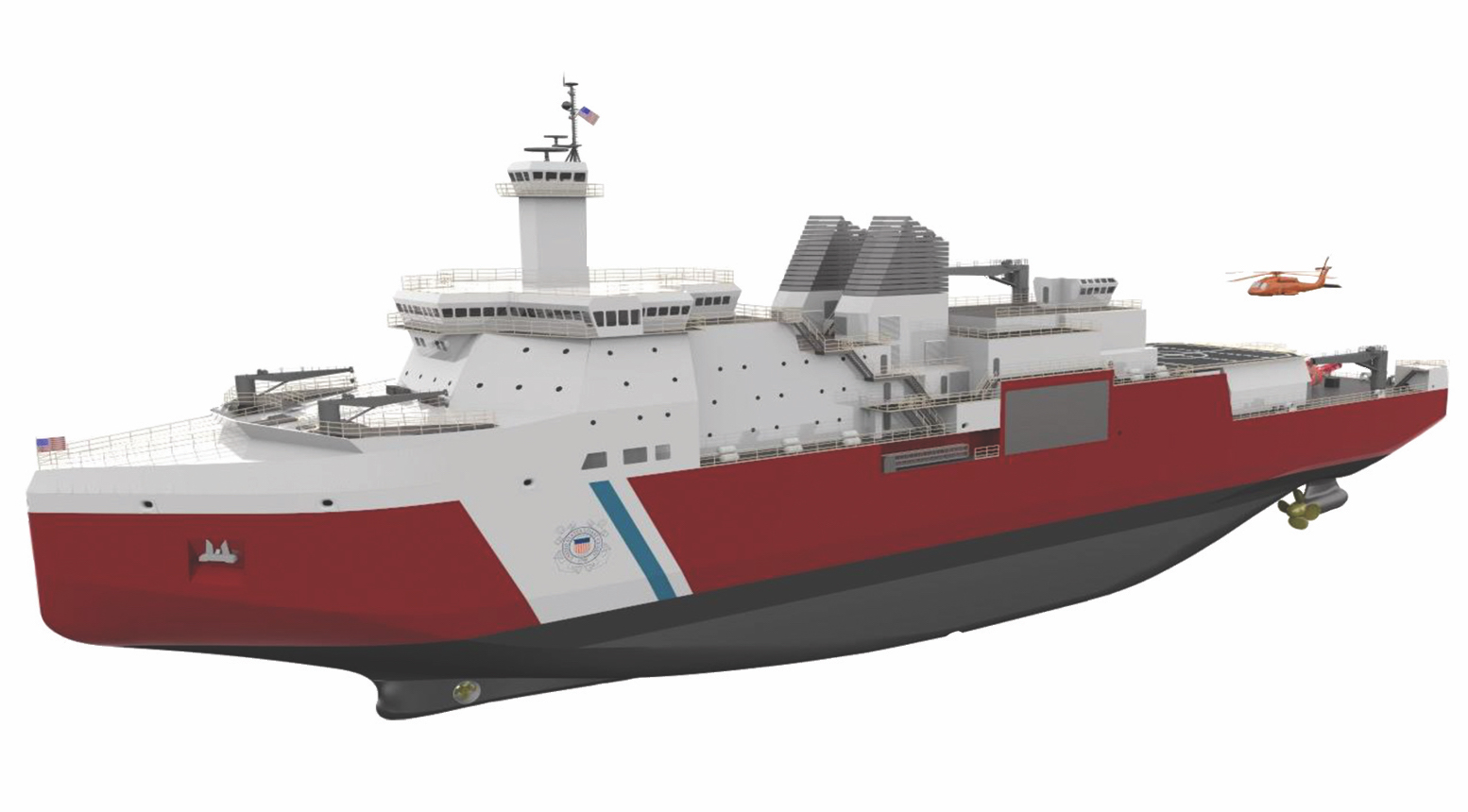
The Polar Security Cutter’s funding was delayed while Congress struggled to pass appropriations bills for several domestic agencies. The year started with the Coast Guard forced to operate under a government shutdown. Coast Guard personnel had to work for about a month without pay.
In April, the Coast Guard awarded VT Halter Marine $745.9 million to build the first PCS. In May, VT Halter revealed the heavy icebreaker is based on a German research vessel, features a unique Finnish propulsion design and is driven by American diesels.
The Coast Guard’s other large acquisition program, the Offshore Patrol Cutter, is now in such a dire state the service is taking the extraordinary step of recompeting the potentially $10.5 billion contract.
The OPC fell nearly a year behind schedule because of hurricane damage to the shipyard owned by Eastern Shipbuilding Group, initially awarded the OPC contract.
The delay could cost the program an additional $659 million to finish the first OPCs contracted to Eastern Shipbuilding as part of a nine-hull deal awarded in 2016, according to a recent Congressional Research Service report.
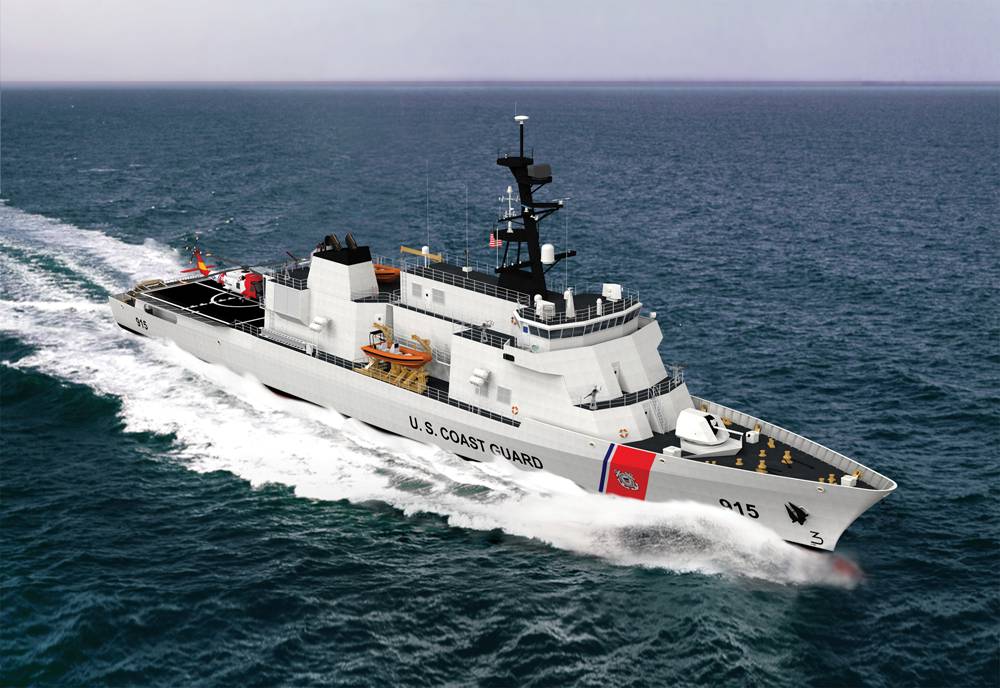
The damage to Eastern Shipbuilding’s yard is considered so severe the Coast Guard now considers recompeting the entire OPC contract to build hulls five through 25 as the best way to reign-in program costs and get construction back on schedule.
The 25-hull OPC fleet is to replace the Coast Guard’s current fleet of 29 medium-endurance cutters, some of which were built during the Vietnam War.
Operations
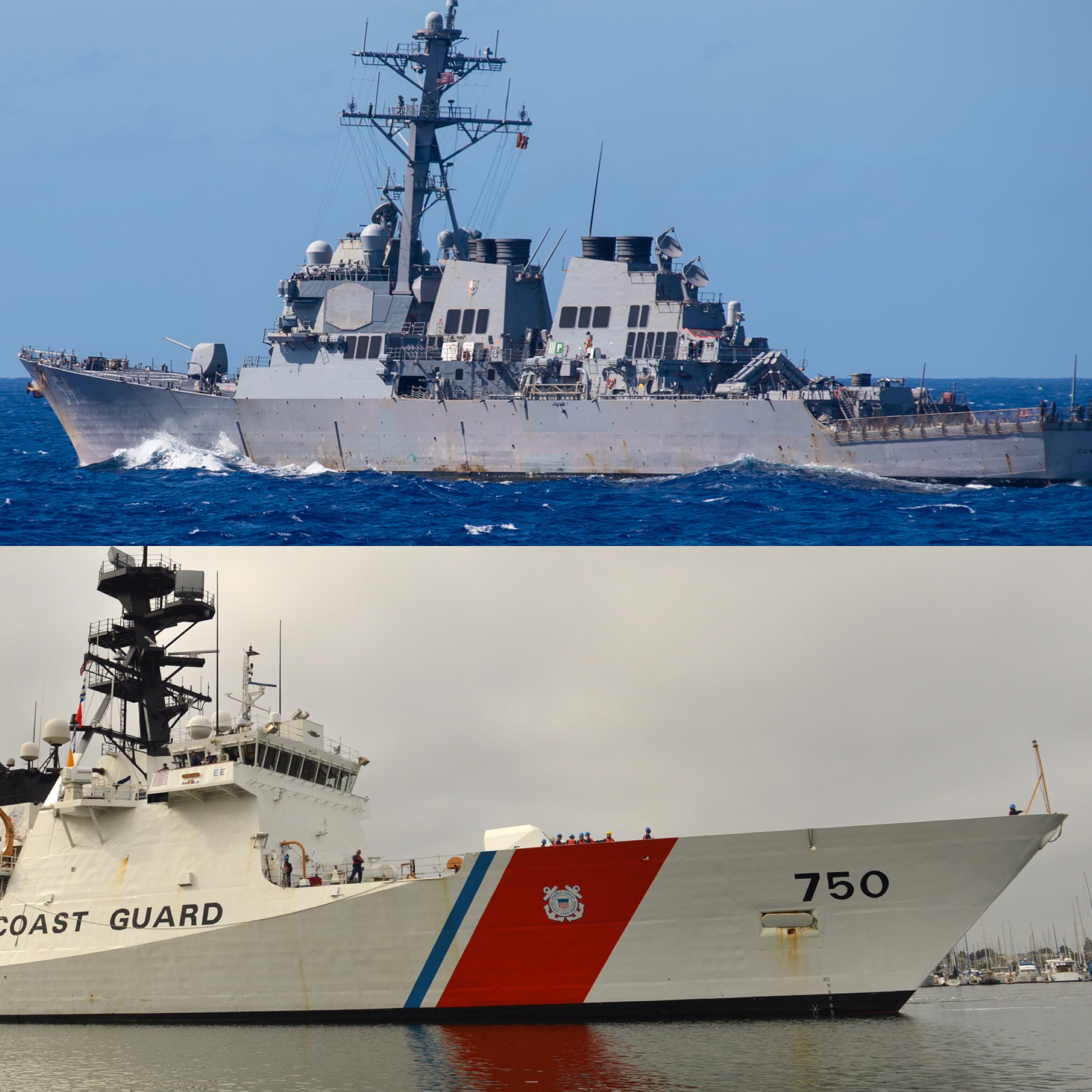
During 2019, Coast Guard cutters participated in several high-profile operations, tracking smugglers, helping friendly nations enforce maritime laws and assisting with hurricane rescue and recovery efforts.
Earlier in the year, National Security Cutter USCGC Bertholf (WMSL-750) sailed with the Navy’s U.S. 7th Fleet and other foreign partner navies to help enforce U.N. Security Council resolutions against North Korea and to enforce international maritime rules in the East China Sea.
In March, Bertholf joined Arleigh Burke-class guided-missile destroyer USS Curtis Wilbur (DDG-54) on a transit of the Taiwan Strait.
Commandant of the Coast Guard Adm. Karl Schultz mentioned Bertholf’s mission to the Western Pacific Ocean and its operation with U.S. 7th Fleet forces during his annual “State of the Coast Guard” speech.
National Security Cutter USCGC Stratton (WMSL-752) also participated in a six-month deployment to 7th Fleet to conduct similar missions.
Bertholf finished 2019 with an Eastern Pacific patrol resulting in the off-load of 18,000 pounds of cocaine captured by five Coast Guard cutter crews during seven drug interdictions off the coasts of Mexico, Central and South America, according to the Coast Guard.
The interdictions occurred between mid-October and early December. Bertholf’s crew conducted three of the interdictions, seizing 5,851 pounds of cocaine with an estimated value of more than $100 million.
In July, USCGC Munro (WMSL-755) returned to San Diego with a record haul of 39,000 pounds of cocaine seized from smugglers in the Pacific Ocean. The cocaine and 933 pounds of marijuana had an estimated value of $569 million, Coast Guard officials said. Munro’s crew seized the drugs during 14 drug interdictions and disruptions off the coasts of Mexico, Central America and South America between April and July.
Not all the attempted interdictions are successful. Coast Guard officials say cutters frequently approach suspected smugglers who dump their loads into the ocean before speeding away in boats modified to maximize speed.
Hurricane Dorian
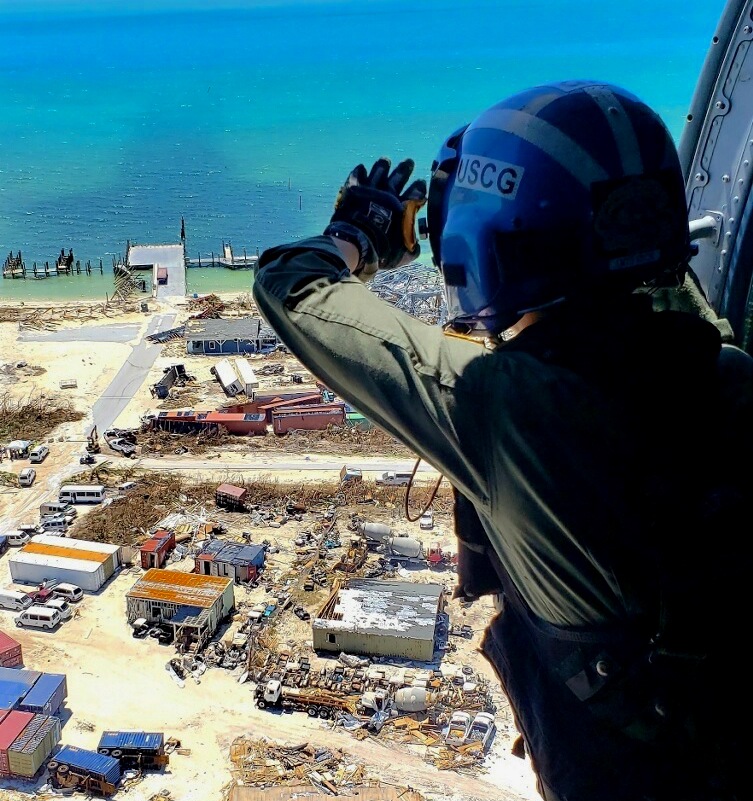
The Coast Guard spent two weeks in September assisting the disaster relief efforts after Hurricane Dorian made landfall on the Bahamas.
The storm struck as a devasting category 5 hurricane on Sept. 1, displacing nearly 70,000 people.
A week later, USNI News embarked on a C-130H transport plane packed with food, medical supplies and crews for several MH-60 helicopters stationed on Andros Island. At the time, supplies and personnel were heavily dependent on aerial lift to reach the hardest-hit locations
U.S. Coast Guard rescue crews received 1,388 search and rescue calls, conducted 136 aviation sorties, 62 surface sorties and rescued 407 people, according to the Coast Guard.
The U.S. Government also provided roughly $21 million in aid, including $12.5 million to fund U.S. Agency for International Development, USAID, disaster relief activities, and $8.5 million to support the Department of Defense logistics and transportation activities, according to USAID.
Africa
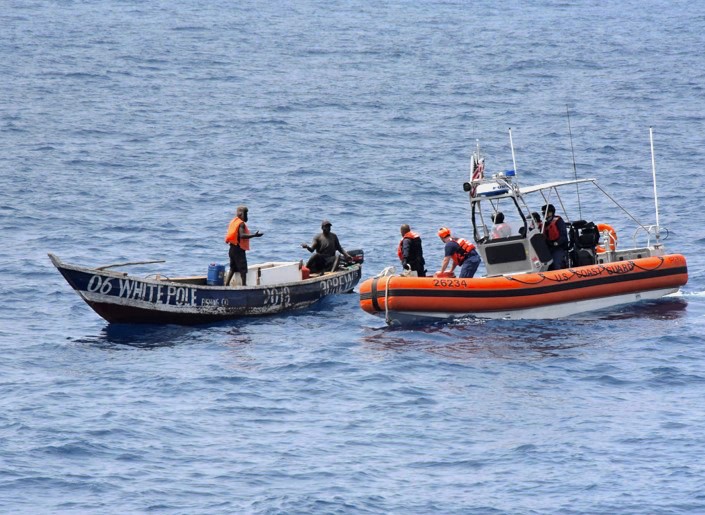
USCGC Thetis (WMEC-910) spent the Spring on a 90-day mission to Africa’s Atlantic coast, where the crew helped enforce local fishing rights, combat smuggling and piracy and rescued two fishermen who had already been declared dead by their home nation.
Thetis is a 270-foot Famous-class medium endurance cutter based in Key West, Fla. The cutter is designed for finding small ships at sea – such as those used by smugglers. Thetis’ crew went to Africa’s Gulf of Guinea region in early 2019 to share their expertise with African maritime nations.
Protecting fishing rights and combatting smuggling and piracy activities is the primary mission of most African maritime forces in this region of the world. The U.S. Coast Guard’s law enforcement mission aligns very closely with the work performed by the maritime forces from nations on Africa’s Atlantic Coast.
In most cases, the African nations’ maritime forces operate similar-sized vessels with similar equipment to what the U.S. Coast Guard uses. In Nigeria, Thetis’ crew operated with the Nigerian navy frigate NNS Thunder (F90), which is the former Hamilton-class high endurance cutter USCGC Chase (WHEC-718). The U.S. Coast Guard transferred Chase to Nigeria after being decommissioned in 2011.
However, sending the U.S. Coast Guard to help train African maritime forces fits into a broader U.S. strategy of countering the growing influence of China.
“China has tripled its loans to Africa since 2012, making Beijing a major debt holder for African governments. China’s focus is geared towards using money and loans to open doors and access to natural resources contracts. This type of debt diplomacy can be a hindrance,” Adm. James Foggo, the commander of U.S. Forces Africa, explained during a Spring edition of his podcast.
Coast Guard and Pentagon officials frequently explain when U.S. military forces assist nations enforcing maritime laws or provide operational training, these are not transactional engagements and the governments are not expected to pay for such services.
“The bottom line is we’re there to work with our friends,” Foggo said. “We don’t ask for anything in return except for their friendship.”





